
The Lovin' Spoonful is an American folk-rock band formed in Greenwich Village, New York City, in 1964. The band were among the most popular groups in the United States for a short period in the mid-1960s and their music and image influenced many of the contemporary rock acts of their era. Beginning in July 1965 with their debut single "Do You Believe in Magic", the band had seven consecutive singles reach the Top Ten of the U.S. charts in the eighteen months that followed, including the number-two hits "Daydream" and "Did You Ever Have to Make Up Your Mind?" and the chart-topping "Summer in the City".

Liberty Records was a record label founded in the United States by chairman Simon Waronker in 1955 with Alvin Bennett as president and Theodore Keep as chief engineer. It was reactivated in 2001 in the United Kingdom and had two previous revivals.

Let It Bleed is the eighth studio album by the English rock band the Rolling Stones, released on 28 November 1969 by London Records in the United States and on 5 December 1969 by Decca Records in the United Kingdom. Released during the band's 1969 American Tour, it is the follow-up to Beggars Banquet (1968), and like that album is a return to the group's more blues-oriented approach that was prominent in the pre-Aftermath (1966) period of their career. Additional sounds on the album draw influence from gospel, country blues and country rock.
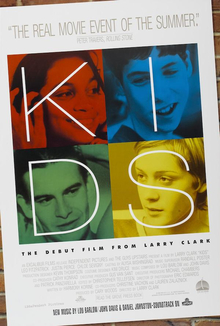
Kids is a 1995 American drama film directed by Larry Clark in his directorial debut and written by Harmony Korine in his screenwriting debut. It stars Leo Fitzpatrick, Justin Pierce and Chloë Sevigny in their film debuts. Fitzpatrick, Pierce, Sevigny, Dawson, and other newcomers portray a group of teenagers in New York City. They are characterized as hedonists, who engage in sexual acts and substance abuse, over the course of a single day.
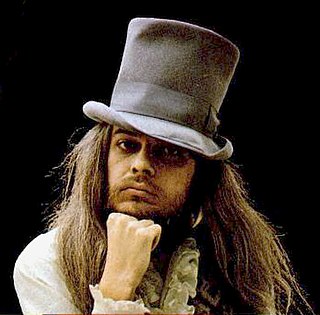
Leon Russell was an American musician and songwriter who was involved with numerous bestselling records during his 60-year career that spanned multiple genres, including rock and roll, country, gospel, bluegrass, rhythm and blues, southern rock, blues rock, folk, surf and the Tulsa sound. His recordings earned six gold records and he received two Grammy Awards from seven nominations. In 1973 Billboard named Russell the "Top Concert Attraction in the World". In 2011, he was inducted into both the Rock and Roll Hall of Fame and the Songwriters Hall of Fame.
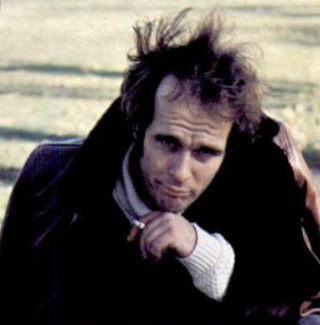
James Timothy Hardin was an American folk and blues songwriter. As well as releasing his own material, several of his songs, including "If I Were a Carpenter" and "Reason to Believe", became hits for other artists.

Opel is a 1988 album compiled from recordings made by former Pink Floyd frontman Syd Barrett between 1968 and 1970. The album is a compilation of unreleased material and alternative takes of recordings from sessions for Barrett's solo albums, The Madcap Laughs and Barrett.
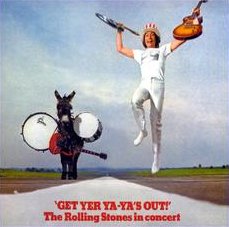
Get Yer Ya-Ya's Out!: The Rolling Stones in Concert is the second live album by the Rolling Stones, released on 4 September 1970 on Decca Records in the UK and on London Records in the United States. It was recorded in New York City and Baltimore in November 1969 prior to the release of Let It Bleed. It is the first live album to reach number 1 in the UK. It was reported to have been issued in response to the well-known bootleg Live'r Than You'll Ever Be. This was also the band's final release under the Decca record label. Subsequent releases were made under the band's own label Rolling Stones Records.
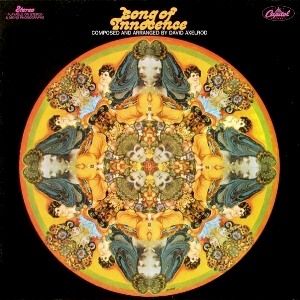
Song of Innocence is the debut album by American composer and producer David Axelrod. It was released in October 1968 by Capitol Records. In an effort to capitalize on the experimental climate of popular music at the time, Axelrod composed the album as a suite-like tone poem interpreting Songs of Innocence, a 1789 illustrated collection of poems by William Blake. Recording took place at Capitol Studios in Los Angeles with an orchestra and studio musicians from the Wrecking Crew collective, including keyboardist and conductor Don Randi, guitarist Al Casey, bassist Carol Kaye, and drummer Earl Palmer.

"You're Sixteen" is a song written by the Sherman Brothers. It was first performed by American rockabilly singer Johnny Burnette, whose version peaked at number eight on the US Billboard Hot 100 in December 1960 and number 3 in the UK in 1961. The song was covered by Ringo Starr in 1973 and this version reached number one in the US.
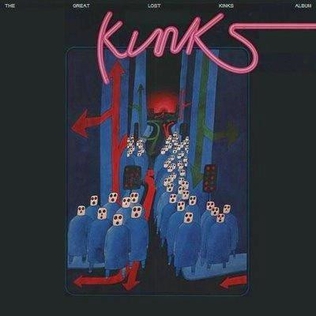
The Great Lost Kinks Album is a compilation album by the English rock band the Kinks. Released in the United States in January 1973, it features material recorded by the group between 1966 and 1970 that had mostly gone unreleased. The compilation served to satisfy Reprise Records after executives determined that the Kinks contractually owed them one more album, despite the band's departure from the label in 1971.
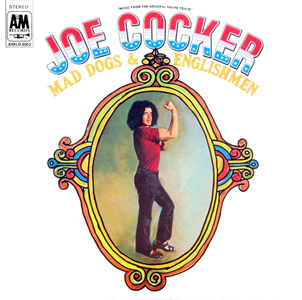
Mad Dogs & Englishmen is a live album by Joe Cocker, released in 1970. The album's title is drawn from the 1931 Noël Coward song of the same name and Leon Russell's "Ballad of Mad Dogs and Englishmen". Only four songs of the 16 on the original album were drawn from his first two studio albums. Besides the contributions of bandmate and musical director Leon Russell, it draws equally from rock and soul. Accompanying Cocker is a choir, a three-piece horn section and several drummers.
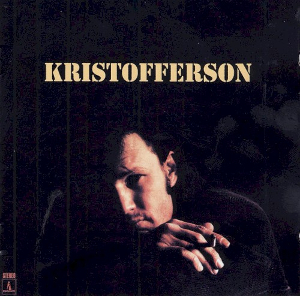
Kristofferson is the debut album by the singer-songwriter Kris Kristofferson. It was produced by Fred Foster and released in June 1970 by Monument Records. After working a series of temporary jobs, Kristofferson became a helicopter pilot for oil companies in the Gulf of Mexico. While he worked, he wrote songs and pitched them to singers around Music Row in Nashville, Tennessee during his free time. Kristofferson's songs were recorded by country singers Roy Drusky, Jerry Lee Lewis and Roger Miller and later he persuaded Johnny Cash to try his material. Cash invited Kristofferson to perform with him at the Newport Folk Festival, after which Fred Foster signed Kristofferson to Monument Records as a songwriter and recording artist.

Elvis on Tour is a 1972 American concert film starring Elvis Presley during his fifteen-city spring tour earlier that year. It is written, produced, directed by Pierre Adidge and Robert Abel and released by Metro-Goldwyn-Mayer (MGM).
"Gimme Shelter" is a song by the English rock band the Rolling Stones. Written by Jagger–Richards, it is the opening track of the band's 1969 album Let It Bleed. The song covers the brutal realities of war, including murder, rape and fear. It features prominent guest vocals by American singer Merry Clayton.

St. Cecilia: The Elektra Recordings is a compilation album consisting of recordings by the American rock band the Stalk–Forrest Group, who would later be known as Blue Öyster Cult. It is a combination of two albums recorded by the group for Elektra Records – one in 1969 and the other in 1970 – as well as the promotional single "What is Quicksand?" released in 1970. Except for the single, the tracks were not officially released until 2001, although bootlegs had existed and individual tracks had been released as bonus tracks to other albums.

Sunday Morning with Nat Stuckey and Connie Smith is the second collaborative studio album by American country artists Nat Stuckey and Connie Smith, released in January 1970 by RCA Victor. The album was a collection of country gospel songs performed as duets by both artists and the pair's first album of religious music. Included was the song "If God Is Dead ". Released as a single, the song charted in the top 60 of the American country chart in 1970. The album received a positive review from Billboard magazine following its release. In 2002, the album was re-released under the title God Will and included a twelfth track.

The Lovin' Spoonful is an American folk-rock band which was originally active between 1964 and 1968. During their original tenure, they released five studio albums, two soundtrack albums, four compilation albums, and fourteen singles in the United States. Between October 1965 and January 1967, their first-seven singles reached the Top Ten in the United States on Billboard magazine's Hot 100 chart, and the magazine's 1966 end-of-year issue ranked the group as that year's third-best-performing singles artist, after the Beatles and the Rolling Stones. Though the Spoonful achieved success during the transition to the album era, they and their label remained focused on the singles market; the group's 1966 album Daydream was their only studio album to break the Top Ten of the Billboard Top LPs chart, and its performance was bested only by a 1967 compilation album, The Best of the Lovin' Spoonful, which RIAA certified for gold that year. The Spoonful saw diminished success in 1967, when only two of their singles entered the top twenty in the U.S. Following further chart disappointments, the group disbanded in 1968.
Richard "Rick" Arthur Holmes, Jr., was an American jazz radio disc jockey and Grammy-nominated spoken word recording artist. Holmes was born in Knoxville, Tennessee and after serving in the United States Navy, moved to Los Angeles. He was employed at the US Postal Service while attending the Don Martin School of Broadcasting, and after graduation he began his professional radio career at KBCA Radio 105.1 FM, in Los Angeles, where he worked from 1967 until 1970.

John William "Buck" Wilkin was an American singer-songwriter and session musician. Wilkin started his career as a child on the Ozark Jubilee television program with Brenda Lee. His mother, songwriter Marijohn Wilkin, later moved the family to Nashville, Tennessee, where she started the publishing company Buckhorn Music. Wilkin and Buckhorn Music had a hit in 1964 with his original composition "GTO", which he recorded as a member of Ronny & the Daytonas and was frequently covered by groups such as The Beach Boys and The Hondells.


















